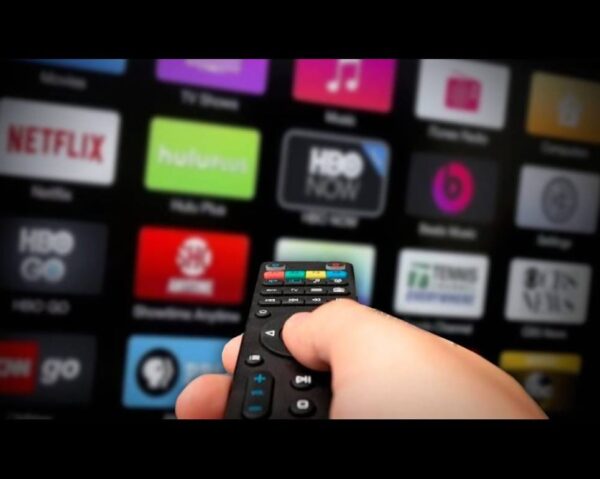How Does IPTV Work? The Ultimate Beginner’s Guide to Streaming TV in 2025
Television has evolved dramatically over the last decade. What once required bulky television sets connected to satellite dishes or cable boxes is now available with just a simple internet connection and a smart device. The way we consume television content has shifted, and it’s all thanks to IPTV — Internet Protocol Television.
Gone are the days when families would gather around large, cumbersome TVs that relied on coaxial cables or satellite signals. Now, the digital age offers the ability to stream live television and on-demand content from any part of the world through IPTV. But how exactly does IPTV work? What are its benefits? And how can you leverage IPTV to enhance your entertainment experience in 2025? In this complete guide, we will walk you through everything you need to know about IPTV.
As more and more people opt for internet-based entertainment, the popularity of IPTV continues to grow. Whether you’re an experienced techie or a newcomer exploring the world of online streaming, understanding IPTV is essential to making informed decisions about your television viewing.
What Is IPTV?
IPTV stands for Internet Protocol Television.
Instead of receiving TV programs through satellite signals or cable networks, IPTV delivers television content over the internet.
IPTV explained simply:
Imagine Netflix or YouTube — but for live TV channels, movies, and series, available anytime and anywhere through an internet connection.
But how does IPTV work? IPTV uses the Internet Protocol to transmit the signals and data, ensuring that you can watch TV shows in real-time or on-demand over the internet. This system makes IPTV both flexible and scalable.
With IPTV, you don’t rely on traditional methods (cable TV providers or antennas). Instead, everything you watch is streamed online.

How Does IPTV Work?
Understanding how does IPTV works is key if you’re considering switching.
Here’s a simple breakdown:
- Content Source: TV stations and movie studios create and send their content.
- IPTV Server: This content is received, encoded, and stored on IPTV servers.
- Streaming: When you select a channel or a movie, the server streams the content over the internet.
- User Device: Your smart TV, box, tablet, or phone receives the stream and displays it instantly.
Instead of traditional broadcasting, IPTV uses IP (Internet Protocol) to send programs in real time or on-demand.
Types of IPTV Services
There are several types of IPTV services available:
- Live Television (Live IPTV) : Watch TV channels live just like traditional TV but through the internet.
Examples: News broadcasts, live sports events. - Video on Demand (VOD ) : Select any movie or TV show from a catalog and watch whenever you want — similar to Netflix.Example services: Netflix, Amazon Prime Video (technically VOD IPTV).
Devices Compatible with IPTV
One of the best things about IPTV is its versatility. You can watch IPTV content on a variety of devices, as long as you have a stable internet connection. Below are some of the most common devices compatible with IPTV services
- Smart TVs (Samsung, LG, Sony)
- Android TV Boxes (Firestick, Nvidia Shield)
- Smartphones and Tablets (iOS and Android)
- Computers and Laptops (Windows, Mac)
- Game Consoles (PlayStation, Xbox)
The flexibility of IPTV is one of its strongest advantages.
How to Choose the Right IPTV Service for You 🎯
With so many IPTV services available, it can be difficult to choose the right one. Here are some key factors to consider when selecting an IPTV service:
- Stability : Consistent streaming without freezing.
- Channel Variety : Broad range of live channels and VOD.
- Streaming Quality : Full HD or 4K options.
- Trial Period : Test before committing.
- Customer Support : Fast and responsive support.
Now that you know what makes a great IPTV service — stability, variety, top streaming quality, and reliable support —
why settle for less?
At Infinity IPTV, we deliver all these features and more, giving you unlimited entertainment at your fingertips.
Thousands of live channels, premium movies, series, and sports — all in stunning HD and 4K!
FAQ: IPTV For Beginners
➡️ What Internet Speed Do I Need for IPTV?
Minimum: 10 Mbps for HD.
Recommended: 25 Mbps+ for 4K streaming.
➡️ Can I Watch IPTV on Multiple Devices?
Yes, but check if your provider allows multiple simultaneous streams.
➡️ How Much Does IPTV Cost?
Depends on the provider. Generally, subscriptions range from $15 to $30 per month.
➡️ Is Free IPTV Safe?
Free IPTV services can be unstable and risky. It’s better to choose a reputable paid service.
